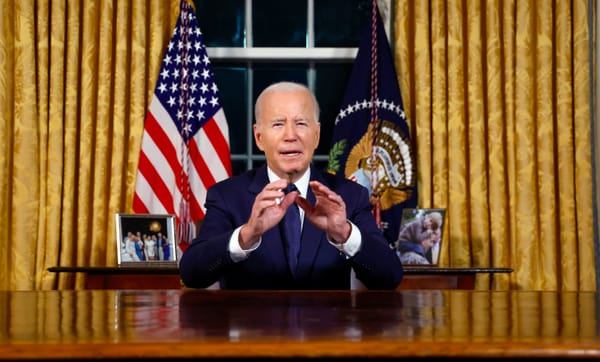George W. Bush’s invasion of Iraq is mostly remembered, for good reason, as a debacle. But as the American military risks being drawn into the Middle East once again, it is worth noting the contrast between the initial phase of the Iraq war and the situation now unfolding in the Middle East. When Operation Iraqi Freedom kicked off on March 20, 2003, Saddam Hussein’s Iraq was isolated diplomatically and had been under harsh economic sanctions for years. Saddam had few allies to call upon, and his military was no match for that of the American hyperpower. Prior to the invasion, the United States had spent more than half a year simply building up forces, shipping over ammunition and fuel and preparing lines of supply. American diplomats had secured permission to stage troops and base aircraft in neighboring countries, such that the coalition had forces both to the south and to the north. The invasion was meticulously prepared, America was on the offense, and brought a massive preponderance of force down on the hapless Iraqi army.
The situation that Washington faces now is almost a photo negative of the one in March 2003. Today, US forces and assets are strewn across the region in military installations with a few thousand troops each. The United States isn’t facing one enemy, but a panoply of militias and terrorist groups, ranged across several countries, all aligned with Iran, which, in turn, has close ties to China and Russia.
America has done no preparation to, say, wage a concerted and effective air campaign against Iran, should the Iranians respond to an Israeli land invasion of Gaza with an all-out assault against the Jewish state. For one thing, Washington is increasingly diplomatically isolated due to Muslim anger over American support for the Israeli offensive in Gaza, but also because of inroads made by rival powers while its attention was elsewhere. This isolation was on display last week when President Biden’s planned summit with the leaders of Jordan, Egypt, and the Palestinian Authority was canceled at the last minute. The West is mostly talking to itself and to the Israeli government. Meanwhile Tehran, Moscow, and Beijing are all engaged in their own diplomatic efforts across the region.
It’s possible that the snubs from America’s traditional Sunni allies are at least partly intended for domestic consumption, to pacify their own publics even as the likes of Riyadh and Amman continue to view Tehran as their No. 1 threat and Israel a useful bulwark against it. The problem is that America’s other interlocking dysfunctions leave scant room for hope that Washington can easily overcome these countervailing forces. The House of Representatives still has no speaker, the deficit is exploding, and the war in Ukraine is already a drain on the defense budget. But this is all just waved away; Treasury Secretary Janet Yellen gives an interview saying that waging two simultaneous wars is perfectly affordable. How will America avoid a severe fiscal crisis if interest rates and inflation continue to spike? Nobody knows; nobody really asks.
Should America be drawn into a regional war, which countries will it be fighting? For how long? What if Russia or China decide to intervene indirectly or directly? What if drones continue to rain down on US bases as its patriot missiles and other interceptors run out? What if another crisis breaks out over Taiwan?
“Turning Iraq into California was a stupid plan, but it was a plan.”
As foolish as George W. Bush administration’s determination to invade Iraq looks in retrospect, the new war heating up in the Middle East threatens to be more catastrophic. Turning Iraq into California was a stupid plan, but it was a plan. Today, the plan is for Israel to defeat Hamas, but it is unclear how this will address the deeper crises that are feeding the current conflict—not just the grievances of Palestinians, but the fact that the US-led regional order is breaking down as other powers assert their interests and pursue their ambitions. Two decades ago, America’s leaders were deluded by visions of democratic transformation; today, it is unclear they have any vision beyond putting out the latest fire and waiting for the next one.
